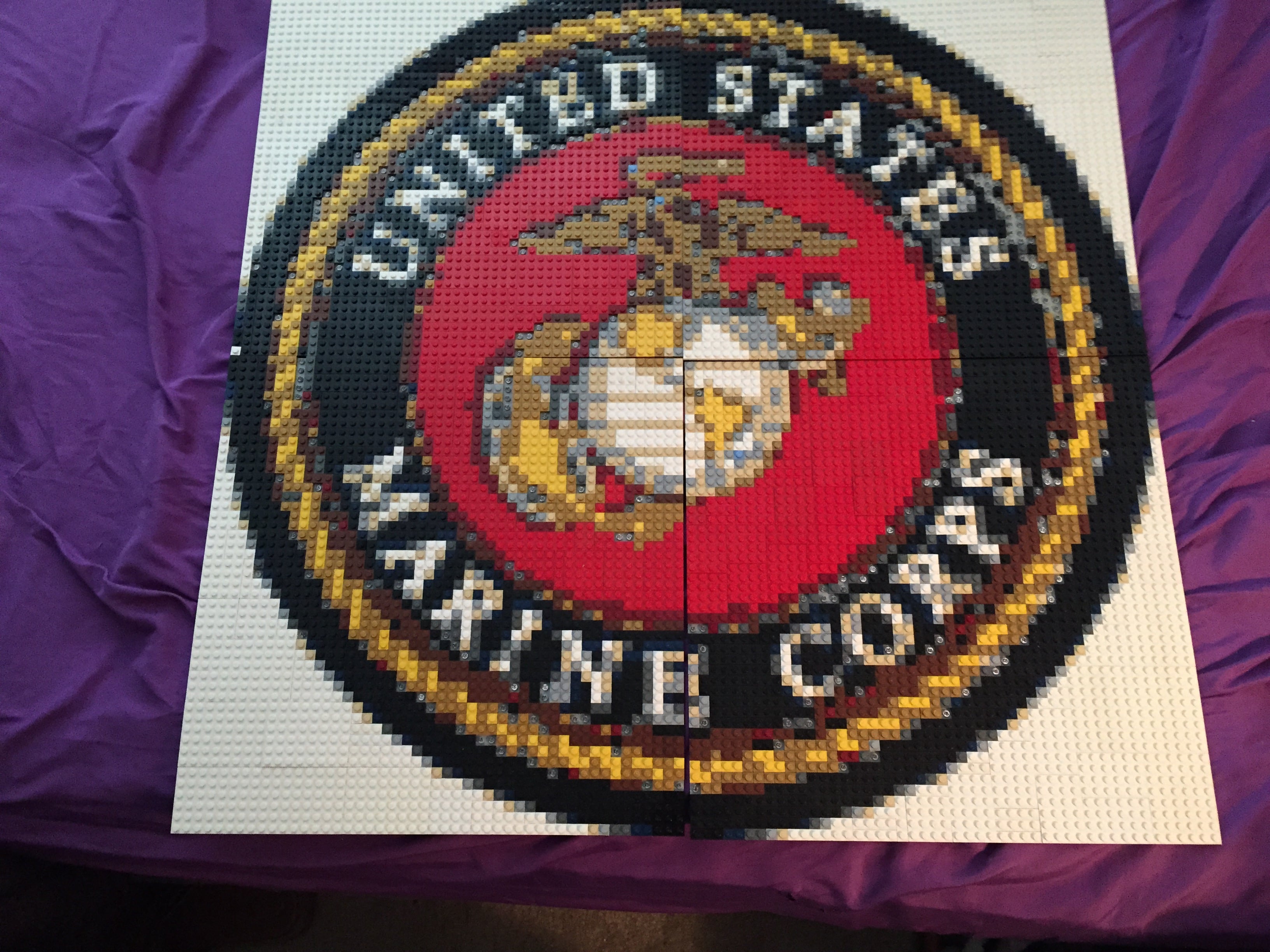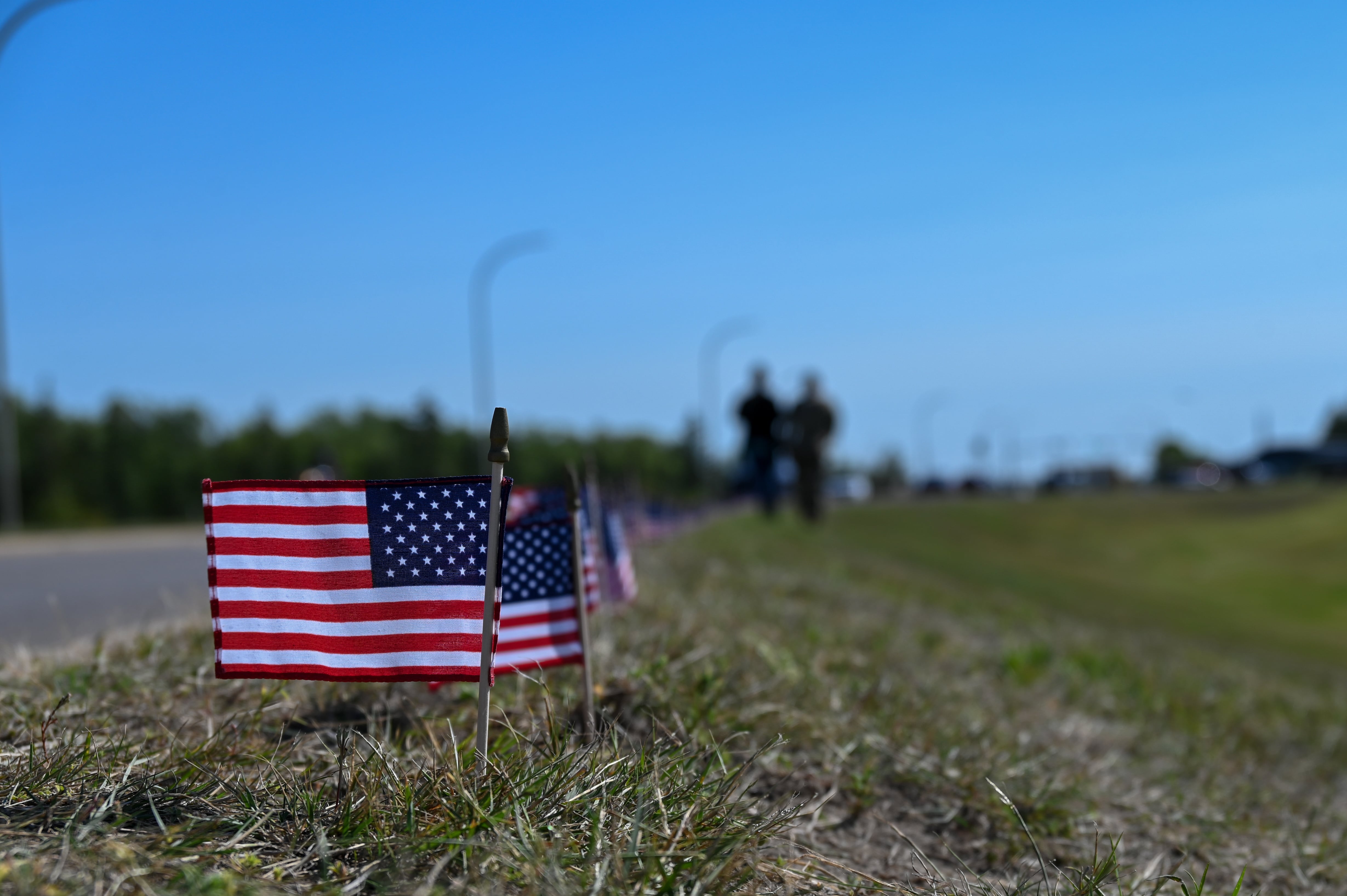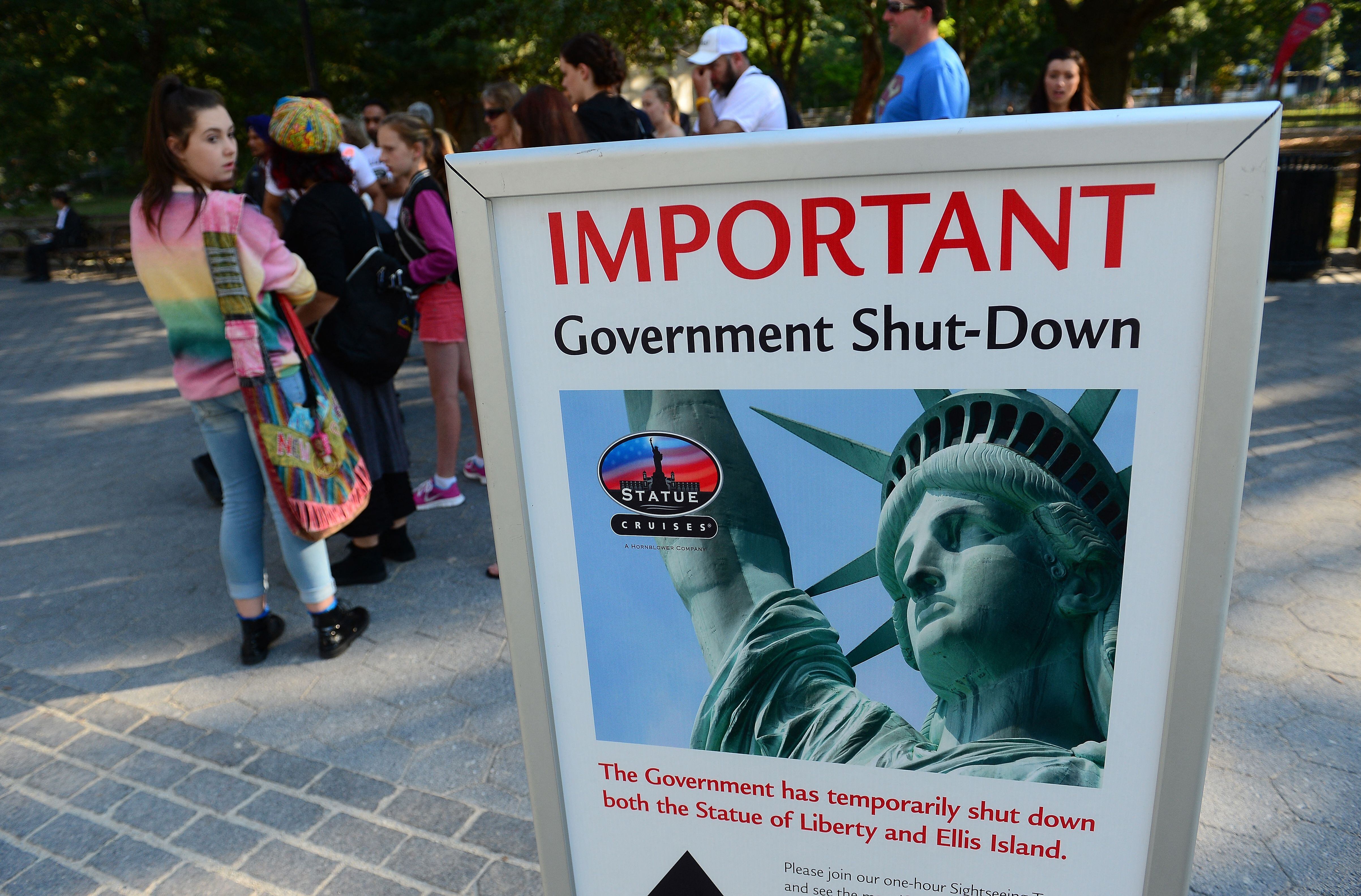Retired Army medic Robin Krauth found relief from post-traumatic stress in a way place the 43-year-old never imagined, and it involved her computer and a massive pile of Lego bricks.
In therapy for PTSD symptoms such as debilitating nightmares and crippling anxiety, Krauth was able to achieve a sense of calm in counseling. That same peaceful feeling proved elusive at home — until she received a casual an incidental gift from her husband, a 1,228-brick Hogwarts Castle Lego set.
"I was excited because I am a huge Harry Potter fan. But as I was building it, I also realized my concentration was up and my anxiety down. I was calm, peaceful," Krauth said.
With that first set, Krauth had stumbled onto a recreational therapy activity that worked for her, improved her mental state, boosted her confidence and provided a gateway to the world of other adult Lego fans.
"I was surprised — I really didn't play Legos as a child. But when I'm doing it now, I'm focused. All the other fears fall away," she said.
Many veterans with PTSD and combat-related depression take part in recreational activities to relieve tension, ease anxiety and reduce stress. This playtime, if conducted as part of an overall treatment plan, is known as recreational therapy, and can be as active as rock climbing or fly fishing or as restful as knitting or painting, according to Brent Hawkins, a recreational therapy professor at Clemson University, South Carolina.
"Most people do some form of recreation just to keep themselves sane, to reduce stress, keep themselves strong," Hawkins said. "For veterans with PTSD, they learn coping skills to deal with their symptoms."
For Krauth, building with Legos, specifically large portraits and landscape mosaics made from the plastic bricks, has improved her mental state and bolstered her confidence in public.
Krauth said that before she discovered Legos, she couldn't walk in to a supermarket or Walmart.
"You have to go into a shop to get these sets. And it turns out that's part of the therapy — how long you can stay in a store or be out in public," Krauth said.
Hawkins said recreational therapy can reinstill confidence in those with PTSD, provide social opportunities and a sense of community, and engage a person whose focus may have waned with an increase in mental health symptoms.
"And there's a fun element, too. When something is fun, we tend to engage in it more often, and the therapeutic values get bigger and bigger the more you do something," Hawkins said.
For Krauth, building Lego sets led her to the St. Louis, Missouri, Lego user group, where she found like-minded builders and discovered a knack for creating complex mosaics.

Robin Krauth created this Marine Corps Eagle, Globe, and Anchor — using 9,216 bricks — in honor of her parents, who were both Marines.
Photo Credit: Courtesy of Robin Krauth
To build a portrait, for example, she takes a photo of the image she wants to create and reduces it to pixels on her computer. She then transfers the pixelated image onto a base, color-codes the squares, and orders the required bricks online.
One of her favorite creations — a Marine Corps Eagle, Globe, and Anchor built in honor of her parents, who were both Marines — used 9,216 bricks, at a cost of about $1,500. Another, an homage to her favorite college mascot, the Louisiana State University tiger, used more than 10,000 Legos.
"I don't keep track of how much I've spent," Krauth said. "I just really don't want to know. But it's worth it."
Krauth, 43, said her PTSD has its roots in a 2009 deployment to Baghdad, where her base sustained daily mortar fire and a soldier, Army Sgt. John Russell, shot and killed five fellow troops in an attack at the Camp Liberty combat stress clinic.
"That was really hard. We were all on lockdown and didn't know what was going on," she said.
She sustained physical injuries, too, including a torn hip and bursitis, and was medically retired.
According to Krauth, once she returned home, she sought mental health counseling but largely stayed in the house, "fearful" and "constantly on edge."
Her therapist asked whether she had any activities that improved her mental state, and she remembered how good she felt building Harry's famed boarding school.
Krauth says she still has PTSD symptoms but that she "handles them better now," and she tells other veterans to find their passion, whether it be a formal recreation program through a therapist, a nonprofit or the Veterans Affairs Department, or a personal hobby that requires focus.
"It just helps to take your mind away from the things that caused the PTSD and the symptoms themselves. You need something to help you heal," Krauth said.
Patricia Kime covers military and veterans health care and medicine for Military Times. She can be reached at pkime@militarytimes.com
Patricia Kime is a senior writer covering military and veterans health care, medicine and personnel issues.





